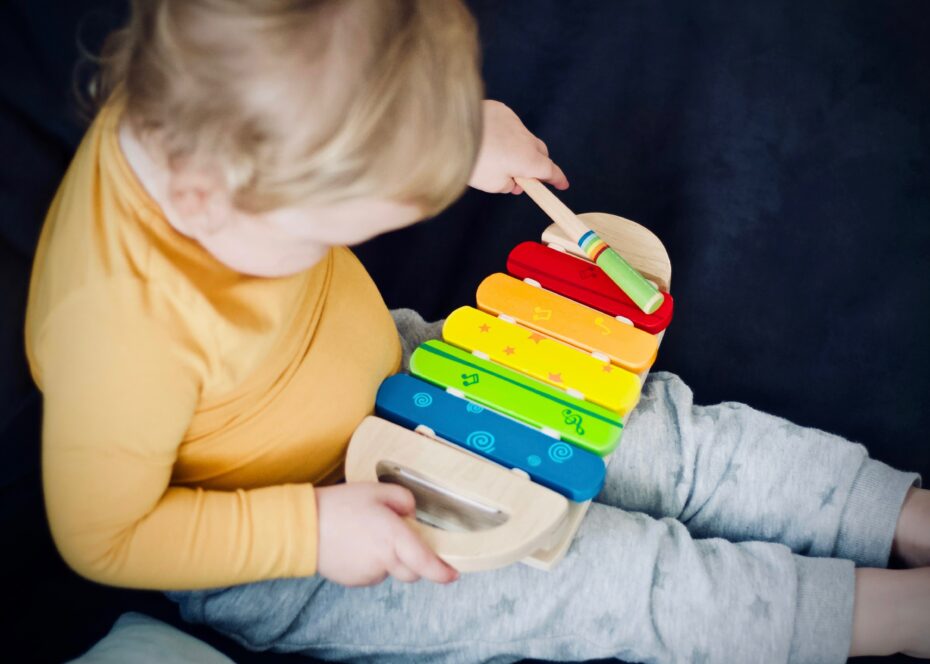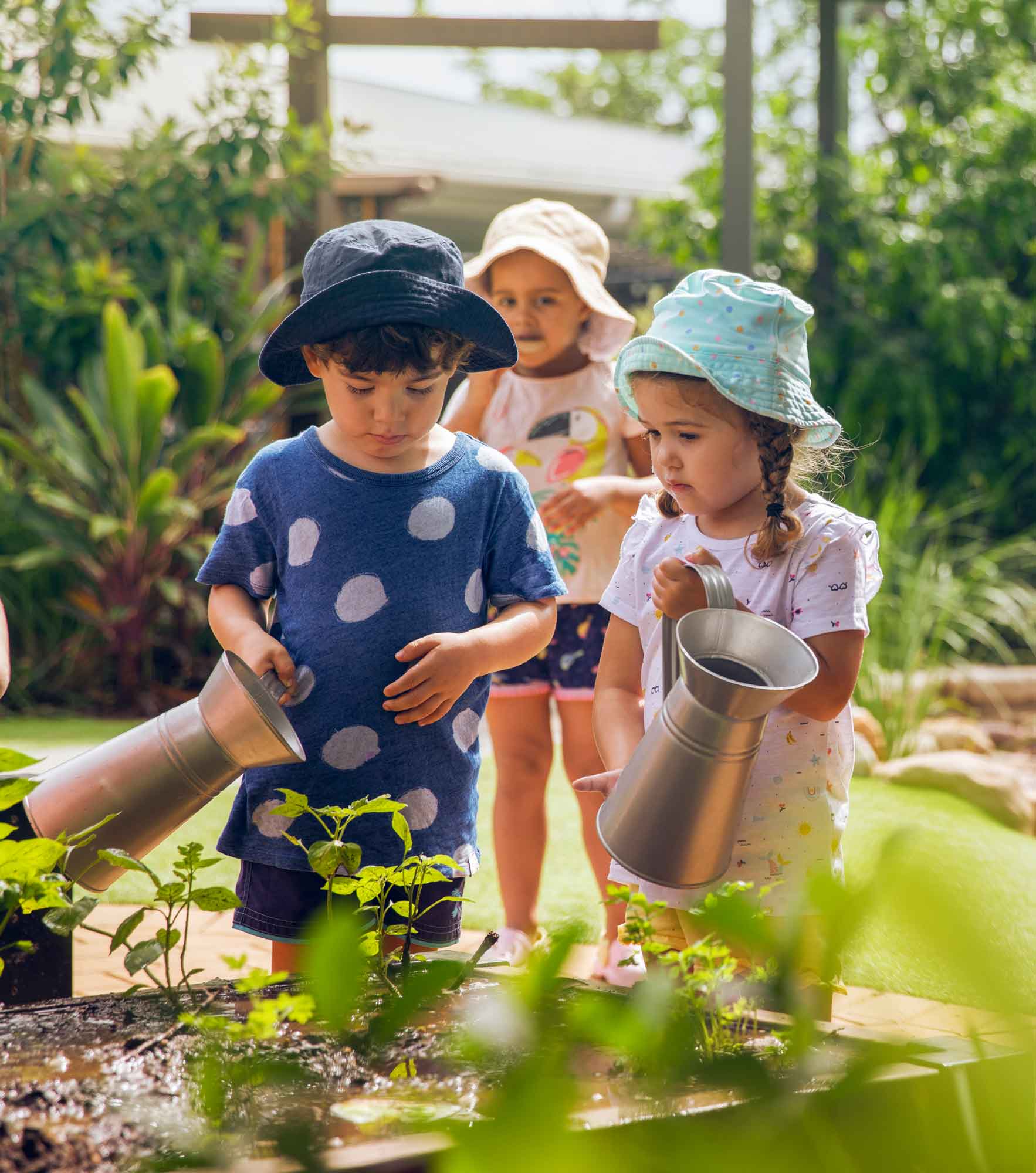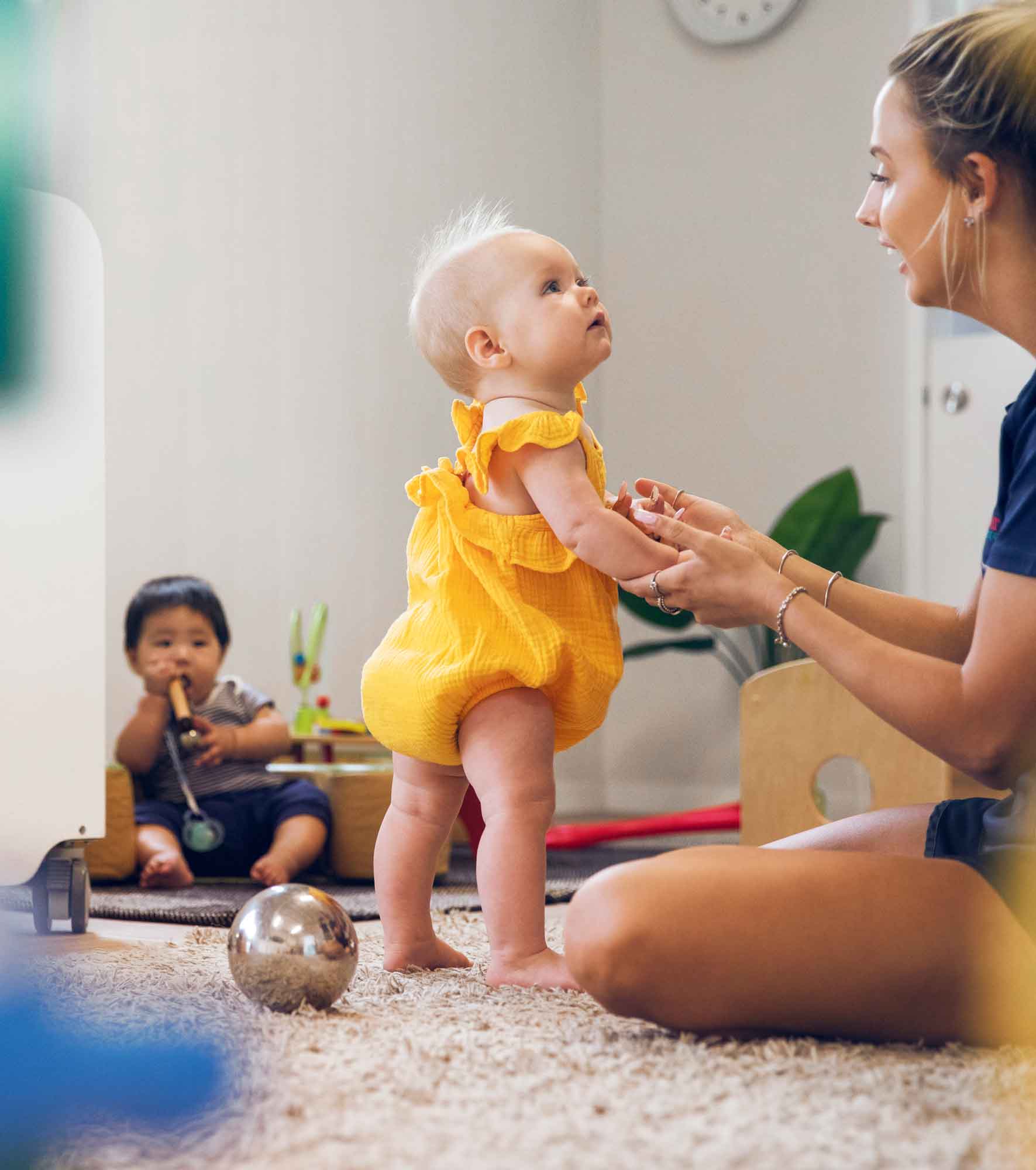Learning Through Music and Brain Development

Did you know that you could learn through music? In fact, most children begin their first steps in the world of education through repetitive beats and songs. For thousands of years, parents and communities have taught children through music, and it is still something that is incredibly important today.
Here at Journey, we believe in teaching our stars of tomorrow a broad curriculum. From nature play learning to play-based learning, we know that children learn best when they’re given a chance to explore and embrace their inquisitive nature.
Do you remember the first song you learned? From ‘heads, shoulders, knees and toes’ to ‘twinkle twinkle little star’, these songs are embedded in our memory, yet chances are most of us do not remember the first time we heard them. However, these are not just fun songs, they play a vital role in our development, and at Journey, all of our children are given a chance to explore their inner rockstar.
How do we learn through music, though? We thought we would take a closer look…
How do children learn through music?
With research showing that it helps our brains to develop, musical engagement plays an important role from the moment we are born. Even before they can speak, babies will interact with certain sounds, swaying to songs or responding to voices, and as they grow, this becomes increasingly more important.
Toddlers, in particular, love to learn through music. The repetition is a great way to help them to start to develop their pattern recognition skills while dancing to songs also helps to boost their hand/eye coordination.
This continues when they start preschool, and at that young age, children are yet to feel self-conscious and are very happy to dance and sing loudly. Games such as musical chairs can also help to teach youngsters essential problem-solving skills as well as help them to develop their special awareness and risk assessment.
As children continue to develop, the impact of music on childhood and adolescent achievement is vital. These songs, lyrics and beats can help with essential academic building blocks such as counting and spelling or understanding sequences.
What are the positive effects of musical training on the brain?
When we listen to music, it has a significant impact on our brain, in particular the cerebral function. A considerable body of research shows that musical training from a young age helps develop structural and functional cerebral characteristics, which leads to cognitive differences compared to non-musicians.
In turn, this can have an impact on how children learn as they progress through their education. From focus and memory to verbal communication and emotional development, the role of the musical intelligence in whole brain education is huge. One particular study was able to clearly demonstrate the augmented spatial abilities in children before, during and after lessons that involved music. However, it is worth noting that musical training is just one form of education that can cause these changes, and there are various other options that can lead to this change in the brain.
What are the benefits of learning through music?
There can be no denying that music has a major impact on how we learn, but what are some of the biggest benefits for children?
It helps them to express themselves
Being able to learn through music is a great way for children to learn how to express themselves. Listening to music and dancing gives youngsters the chance to move freely, while playing with instruments helps to stimulate their creativity and decision-making skills even further.
This can all combine to help them build on their naturally inquisitive nature and ensure they feel confident and free to express themselves through new ideas, sounds and movements.
Enhance social skills
Music is also a great way to help youngsters improve their social skills. Playing and having fun is an essential part of early learning, and no matter whether your child is a verbal communicator or a non-verbal communicator, a shared musical experience can be a wonderful way for them to build strong connections with their classmates.
Listening to a variety of music from different backgrounds and styles can also help develop their ability to understand others and enhance their respect for different cultures further.
Builds language, communication and literacy skills
Alongside enhancing social skills, being able to learn through music can also support the development of language, communication and literacy skills. Regularly listening to songs from an early age helps children to learn the sounds and meanings of certain words, helping to broaden their vocabulary in the process.
They can then use these new words in their literacy and verbal communications, helping them to better connect with peers as well as parents and teachers.
Stimulate mathematical thinking
Of course, learning through music is not only a great way to boost a child’s vocabulary. These songs and musical components can also help them to understand numeracy. Music helps to stimulate the part of the brain that is responsible for mathematics.
This is further reinforced when creating and performing music, as children learn how to create and develop patterns with reason and logic.
- Boost motor skills
Playing with musical instruments and dancing to songs can help a child to further their fine motor skills and coordination. Learning an instrument requires regular finger movements, while dancing to music requires coordination and movements, both actions require physical and mental agility, helping to encourage their body and brains to work together.
- Improves memory
As previously mentioned, studies have shown that music is a great way to remember things – just think about how many lyrics to songs you still remember every day! For children, those catchy nursery rhymes are a great way to help them recall essential information such as numbers and letters.
Music is also a lot of fun, and actively engaging in it can help children to forget they are learning while supporting them in the development of their attention and concentration skills.
Giving the gift of music to your child
Here at Journey, we know how important music is in your child’s early education. That is why we focus on providing them opportunities to explore their creativity through music and play-based learning, setting them on the path to success.

